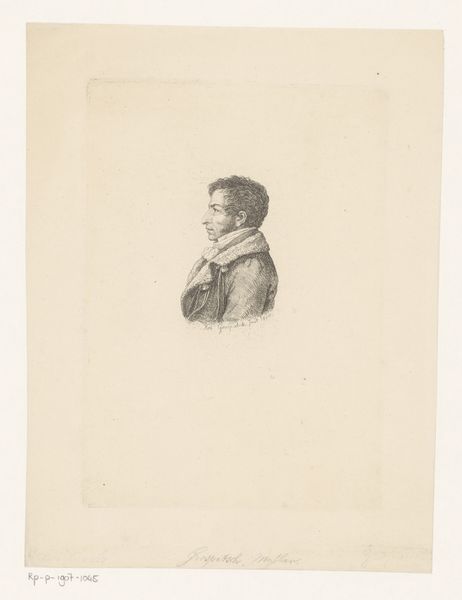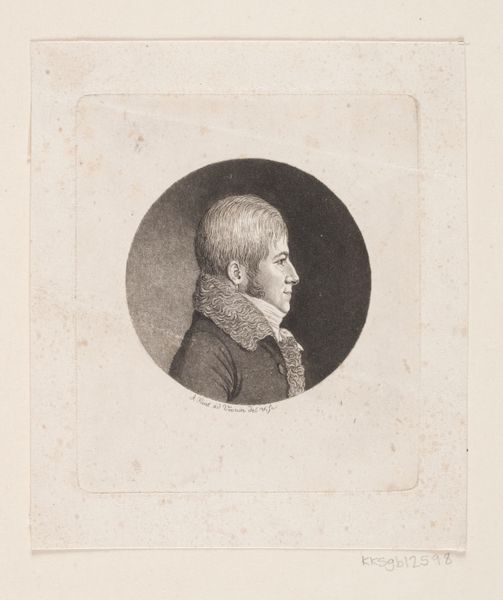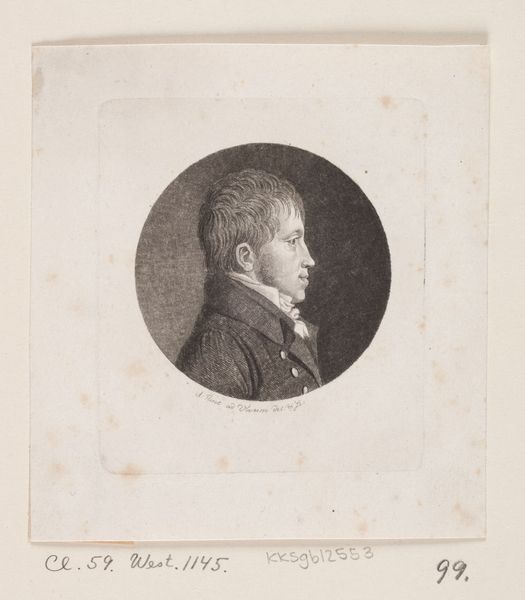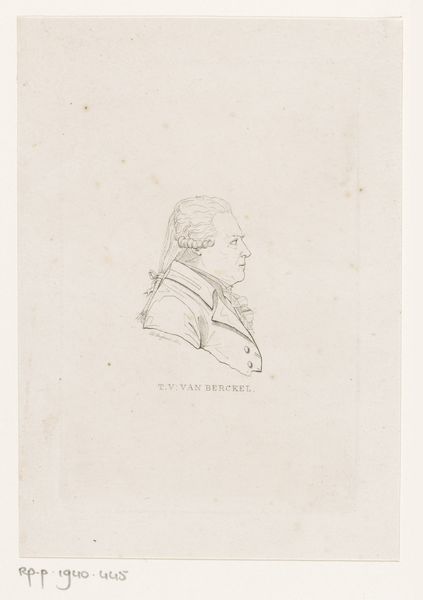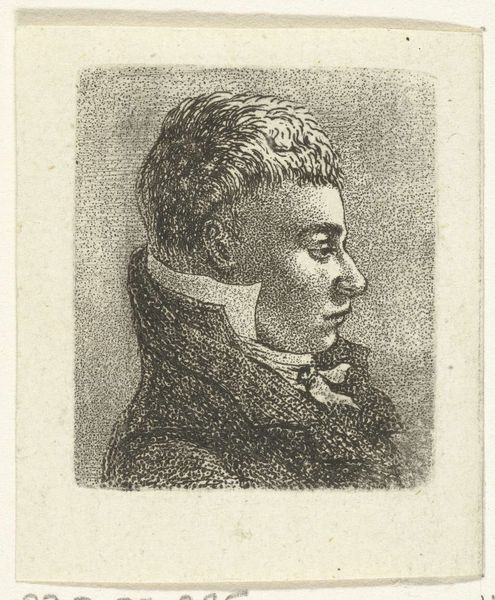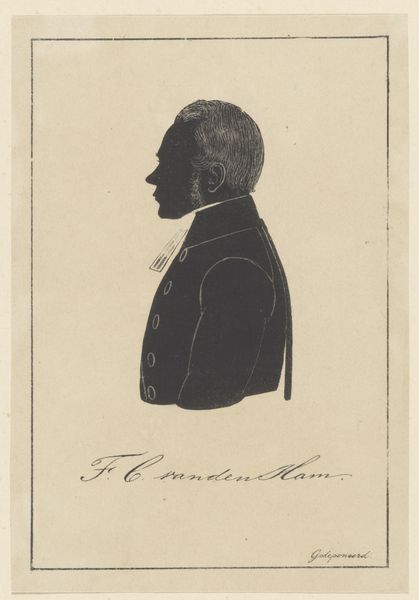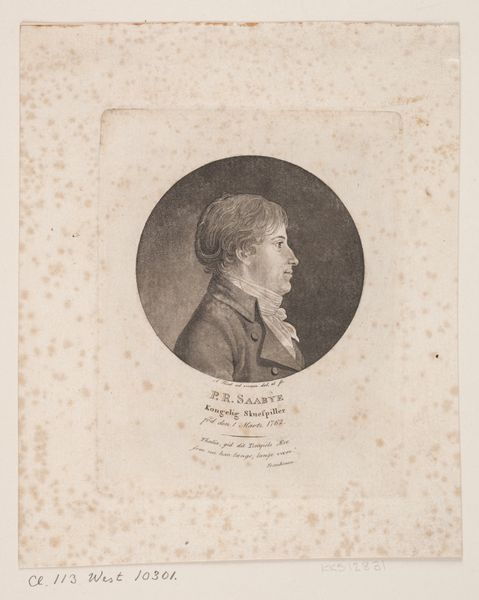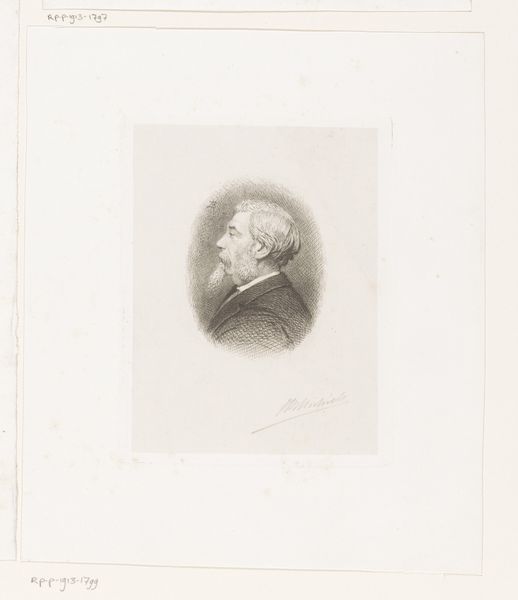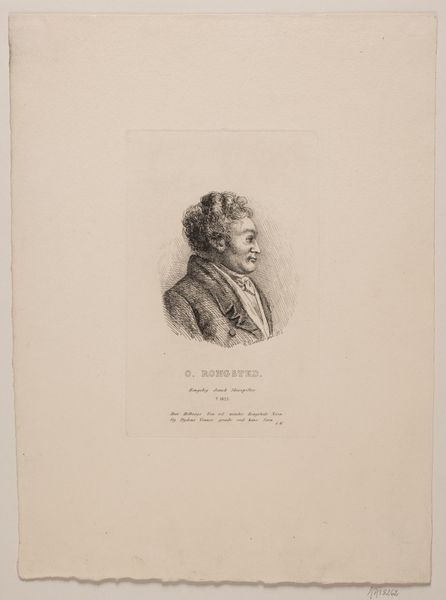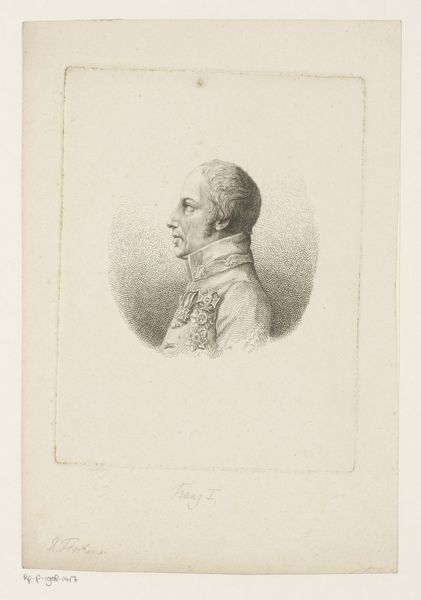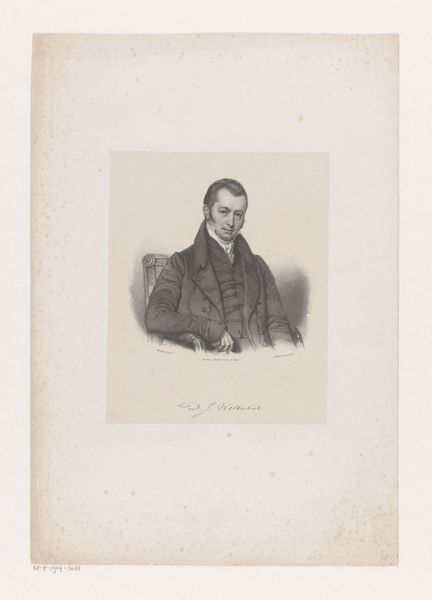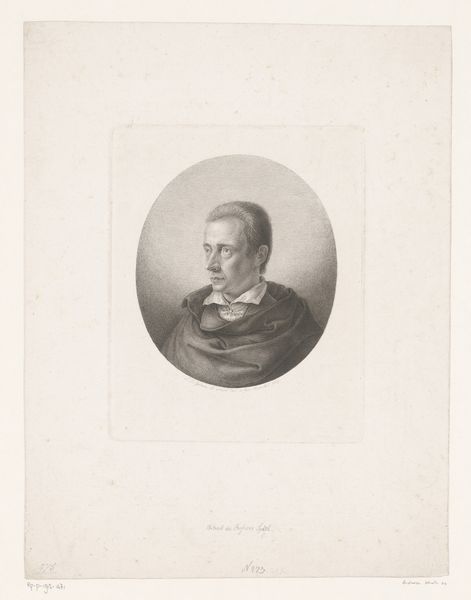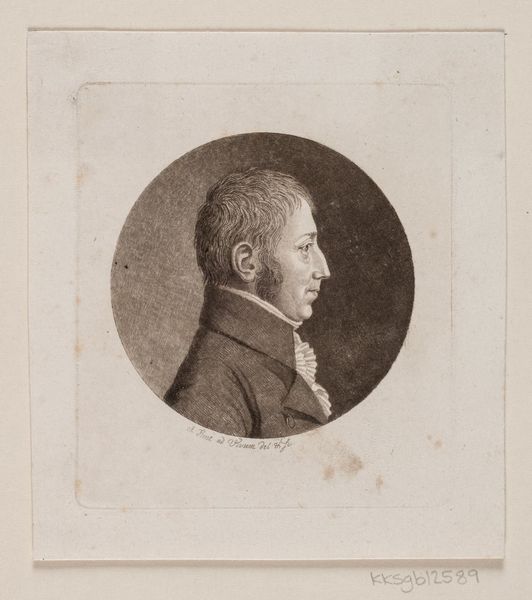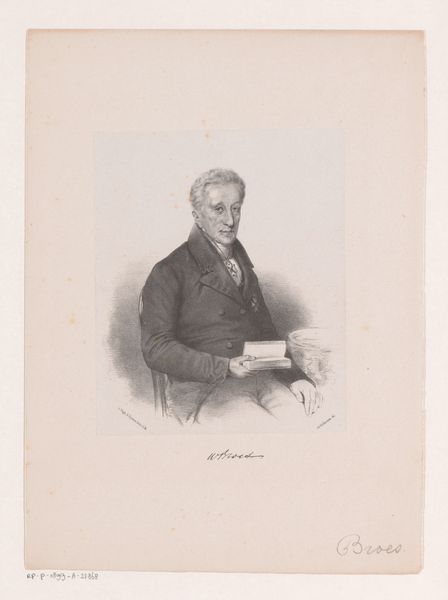
drawing, print, etching
#
portrait
#
pencil drawn
#
drawing
# print
#
etching
#
pencil drawing
Dimensions: height 105 mm, width 78 mm
Copyright: Rijks Museum: Open Domain
Christian Rosée made this portrait of Georg Christoph Wilder using etching. The quality of line, so crisp and sure, gives us a sense of Wilder’s character and Rosée’s mastery. The etching process involves coating a metal plate with a waxy ground, then scratching an image into it with a needle. When the plate is dipped in acid, the exposed lines are eaten away, creating grooves. Ink is then applied, the surface wiped clean, and the image printed onto paper under great pressure. The resulting print is a multiple, part of a growing culture of reproducible imagery. Etchings like this allowed for wider circulation of portraits, fueling a public sphere and enabling new forms of visual communication. The labour involved in the printing process is easily underestimated; each impression demanding careful attention. Looking at this print, we can appreciate not only the artistry of Rosée, but also the labour and industrial systems that allowed it to be shared and appreciated by a wider audience.
Comments
No comments
Be the first to comment and join the conversation on the ultimate creative platform.
